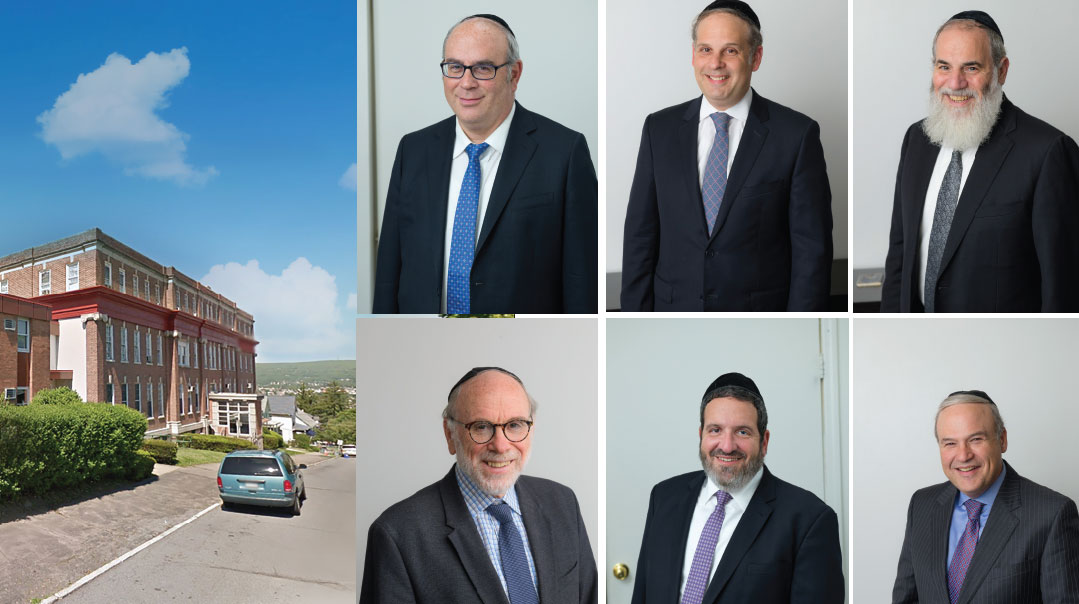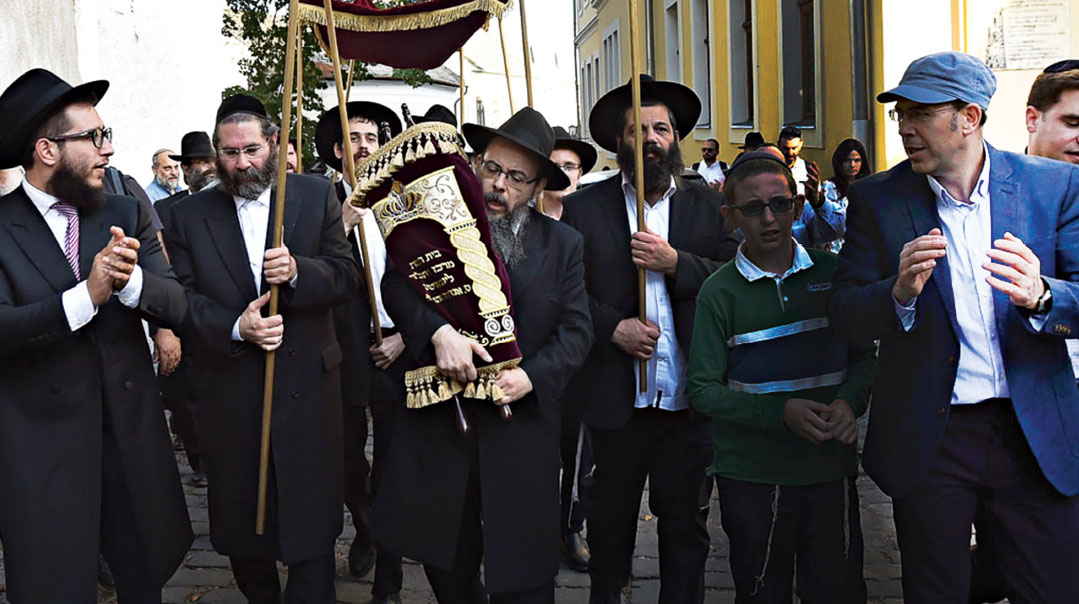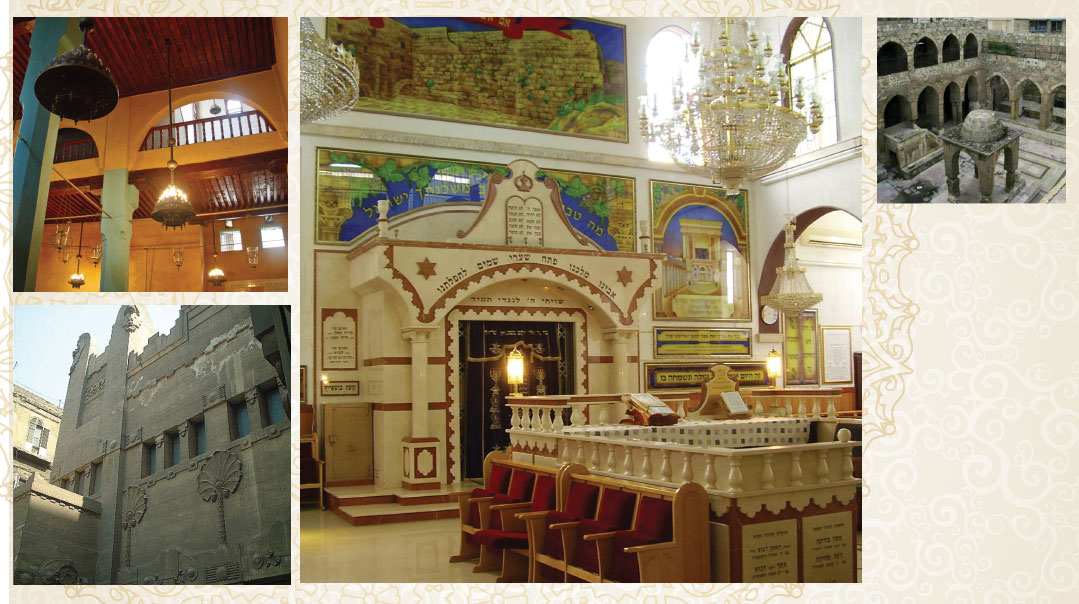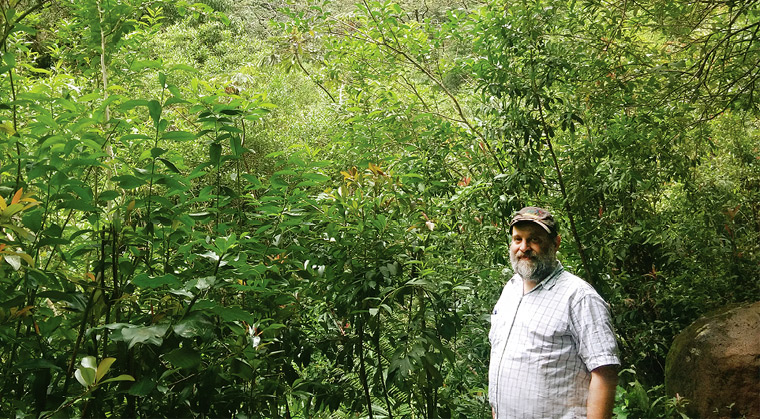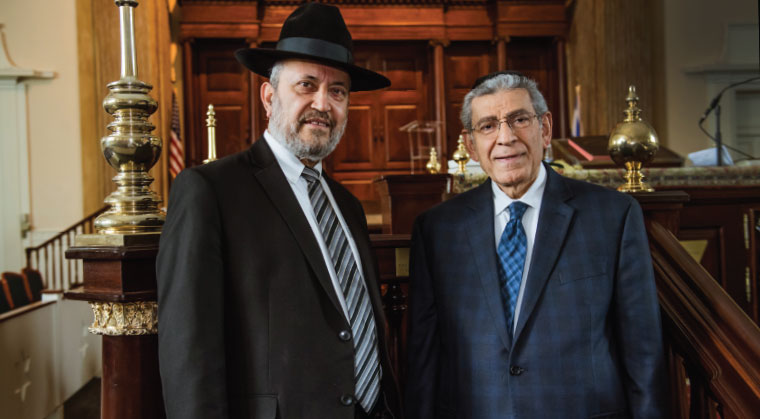A Hero Called Hugo

Hugo Paluch had big plans to help the garbage sifters outside his Johannesburg home. Though the 14-year-old couldn’t complete his task, he inspired others to take up his mission

DREAM BIG Hugo never gave up on his dreams, achieving what no one would have imagined. And nothing is stopping the Johannesburg community from continuing his incredible revolution (Photos: Family archives)
I
In an unassuming house set back from the road, a revolution began that changed the face of the South African community. It began with a boy with a beautiful smile and wide, open eyes — and a heart the size of Johannesburg itself. A boy who looked out of his house, beyond the gated-in property and the electronic fences, and saw the unseen.
And he didn’t stop simply at seeing. Hugo Paluch took his vision — and changed the reality.
Step into the Jewish community of Johannesburg, South Africa, and you will find that Hugo’s name has become a byword. Hugo’s Greenhood, a project aimed at improving the lives of poor men who collect garbage for recycling, was launched in September 2017, along with a parallel effort to encourage members of the Jewish community to recycle their waste materials. There are also schoolchildren trained as junior first-aiders, known as Hugo’s Heroes.
All of this named for Hugo, a 14-year-old boy who died following a schoolyard accident last May. The projects have sprung up, spearheaded by his parents Dov and Nicole Paluch, along with dedicated friends and community members, and have spread beyond anyone’s expectations in just a few short months. How did this happen?
“First, I’m going to correct you on something,” Nicole Paluch, Hugo’s mother, says. “This project is not something we’ve started in Hugo’s memory. It’s something we’ve continued in Hugo’s memory. But the one who began the Greenhood project — who changed the lives of the neglected, unnoticed men on the streets — was Hugo himself.”
Making Wednesdays Happy
“It started with the recycling men,” Nicole explains. The recycling men, who can be seen each Wednesday in the streets of Johannesburg, pulling carts many times bigger than themselves, filled with garbage. Some come for paper, some for plastic, others for any type of recyclable material. After spending the nights sleeping on the streets, they awake before sunrise to rummage through garbage bags that await collection, retrieving anything that could be recycled, and then they push and pull their carts to the town center, where, by the end of the week, they can hope to earn 600 rand (under $50), for their efforts. Whether in the heat of a December summer, or the cold of a July winter, sometimes sick or injured, these men don’t miss a week.
No one ever really thought about the men at the side of the road, searching through the trash. Until Hugo and his mother looked again.
“We thought about how Wednesdays must be the worst day of their week,” she says. “And I suggested to Hugo, maybe we can do something to make Wednesdays happy days for them?”
It began with taking hot lunches out to 12 recyclers. The shocked, almost hesitant smiles on the recyclers’ worn-out faces were the first indication that the Paluchs were onto something.
But Hugo wanted to take it further. “I want to get them jobs,” he told his mother one day. “I want to make things happen.”
And despite the obvious difficulties involved, he was determined to create change.
“That was Hugo — he took everything to the nth degree,” his father, Dov Paluch, says, on the official Hugo’s Greenhood video clip, available on the Greenhood website.
The recycling men on his block became “his” project, and what started with a hot lunch and a drop of human caring became bigger: Others got involved, and people began thinking of these poverty-stricken men and their families. Food and clothes for their children were delivered. Holiday gifts were handed out. And that’s when Hugo decided to up the ante and raise serious money to give 12 men a holiday gift they would always remember.
The Youngest Fund-Raiser
Fund-raising aptitude and business savvy weren’t new to Hugo. He was already known for these traits from his first year at school. “The Hirsch Lyons School, Hugo’s elementary school, runs an annual raffle, where most boys sell one or two books of tickets. The top boys will sell ten, maybe fifteen. In first grade, Hugo managed to sell 50 raffle books,” says his mother, Nicole.”
Hugo was the most successful fund-raiser in his school. When the raffle winners were announced each year, prizes were also awarded for the boys who sold the most tickets.
“Hugo always won first place. Everyone knew that. Some years, he sold 80 ticket books. That number was unheard of. He called businessmen for their help. No one could outdo him when it came to raising money. First it was for his school, and then it was for his project, for ‘his’ recycling men.”
Naturally, then, a raffle was Hugo’s choice to raise money for his recycling men. He asked his friends to donate from their bar mitzvah gift money, arranged for a helicopter ride as the grand prize, and printed tickets. It was a busy time of year — coming up to the summer holidays — and people tried to dissuade him: There’s so much else going on, they said. Leave this project for later. But Hugo was determined, and he was proven right — that first year he raised 13,000 rand, a little over $1,000.
Hugo’s project complete, he wanted to show the children who helped out or bought tickets what their efforts had produced. He spoke in an elementary school assembly, explaining to them how the recycling men would benefit. Someone sitting in that assembly was inspired and called up Nicole Paluch: “I just heard your son speak, and I have an idea for you. Call this woman who runs such projects raising money for the poor of South Africa, it’s right up your alley.”
Actually, Nicole thought, it wasn’t — the raffle was just over, they had done their part, and she wasn’t sure she wanted to take the activism further. But apparently, the woman was waiting to hear from her — and Hugo wasn’t ready to stop.
They made another call and arranged a time to speak in January. In the meantime, another mother called: “I’m obsessed with recycling. Let’s make a real project out of it.”
And Hugo was ready to aim higher. A raffle wasn’t enough. Twelve men weren’t enough. He wanted the project to spread, he wanted to see proper waste management become the norm, and he wanted the recycling men across the city to have the chance to earn money with dignity. And this was his vision —to give the men a chance at a life most of us take for granted, with a real job and a real home.
So he agreed, and his parents, proud although somewhat hesitant, agreed too.
Schoolyard Tragedy
Friday, May 26, 2017. Rosh Chodesh Sivan. It was a few days before Hugo would meet with corporate sponsors to fund his chesed project. He had big ideas and had taken the first step to make them happen. And then, with a terrible accident on the school sports field, it was over.
The soccer goalposts that Hugo was leaning against dislodged, and he was knocked to the ground. Badly injured, Hugo was rushed to hospital, and for the next week and a half fought for his life.
“For 11 days, the entire community came together,” Hugo’s mother says. “People I didn’t know, people I’d never met, everyone was there. In the hospital, or praying for him. It was his neshamah, there was something special there that drew everyone together. He had a special neshamah. He wasn’t a regular child.”
He was niftar just days after the corporate sponsorship meeting he’d moved mountains for would have taken place. He was 14 years old, a year to the day after his bar mitzvah.
The Johannesburg community, already known for its warmth, acceptance, and chesed, banded together. Shocked at the tragedy, drawn by the courage and relentless giving of the young boy who touched so many lives, they exploded into action.
Suddenly, nothing could happen fast enough.
There was a drive, organized by Yeshiva College — Hugo’s high school — for blankets to be donated. May is winter in the southern hemisphere, and Hugo’s classmates and friends had a goal: to collect 1,800 blankets in his zechus. Not just for the recyclers, but for anyone who didn’t have a blanket to keep warm on the cold nights.
The blanket drive wasn’t all. At the time of the accident, Hugo was in high school, but he was still selling his yearly set of raffle books for his elementary school. Now, his friends took over. Everyone was selling, everyone was buying, and everyone was doing it for Hugo.
And then there was the recycling project, originally to be called Greenhood. It has now become Hugo’s Greenhood, a fitting tribute to the boy who began it all.
“All at once, it became huge,” his mother recounts. “It was like it took on a life of its own. At first, no one had heard of it — but suddenly, everyone wanted to get involved. With the recycling, with bringing the men supper on Wednesday nights — they were getting six meals! Someone donated uniforms for them to wear, and then one woman decided to buy them shoes... people just wanted to give.”
The Launch
It was the week of the Shabbos Project, the worldwide initiative that had been sparked in South Africa itself, a few years before.
On Sunday, 22 October 2017, Hugo’s Greenhood was launched in the yard of Yeshiva College, the very place where the accident had taken place. In the bright sunlight of approaching summer, hundreds of participants gathered, painting garbage cans to be used for the express purpose of recycling plastic. Instead of sifting through garbage, the bins allow the recyclers to earn their small salary with a little more dignity. And many of these colorful, personalized bins boasted phrases such as, “Hugo is our Hero!” In honor of Hugo, everyone wanted to get involved — and everyone could. The Greenhood project teaches children and adults alike what a difference each of them can make.
With the slogan “See the Unseen,” a revolution was set into motion. Educational programs were put into place, as the recycling men themselves were invited into schools to speak about the difference recycling can make to the lives of the less fortunate. The men, some in ragged clothing, thanked the students for making this difference. And as they smiled, the flash of white teeth illuminated hungry faces, and the students were able to see individuals, people with feelings and families and lives. Just as Hugo had seen.
“Hugo was a nice guy, always wants to know what was bothering us. He wanted to know all about us,” says one of the men, quoted on the Greenhood video.
“He taught me not to give up,” another adds. “That life is hard, but not always — it can change.”
A link to a network can open up worlds for these men, and that’s one of the ways in which the community has made a difference. Hugo’s grandmother, Mrs. Sharon Sklarchik, explains the cycle of poverty that afflicts these men. “Many come from broken homes, from houses with little or no money. They’ve dropped out of school, have hardly any skills, some can’t even read or write. And they hear about Johannesburg and come, thinking they’ll earn their way — and find no job, no future, nothing.” She pauses and reflects, “We all have networks. We all know people who know people... these men have zero.”
“And that’s what Hugo’s Greenhood has given them — a network,” Nicole explains.
Nicole’s mother adds, “We knew they existed, but until now they were simply unseen. No one saw them before... or they saw, but they didn’t think. Now, everything’s changed.”
Hugo’s Heroes
Right before the accident, Hatzolah was in the process of setting up a school-based first-aid program. “Children are the ones right there on the scene when an incident happens in the schoolyard. And they received permission to implement this plan just one day before Hugo’s accident,” Nicole says.
Hatzolah was on the scene shortly after Hugo’s accident, and, two weeks later, when he was niftar, someone suggested that they take up the first-aid training idea in his memory. Hugo’s Heroes was the result, an initiative in which schoolchildren learn the correct response to accidents and injuries, especially when an adult is not on the scene.
Tragedy served to highlight the need, and today there are over 50 high school students in Johannesburg with advanced knowledge of first aid and CPR. One child, who witnessed Hugo’s accident, found the training to be both productive — and healing. After the frightening trauma of watching a friend’s terrible — and eventually fatal — injury, he is now empowered: in an eye-catching Hugo’s Heroes jacket, armed with first-aid supplies and phone, he knows what to do in the future, should the worst occur.
Over and over, the community, the children, and the family of Hugo Paluch show the same determination to turn tragedy into meaning.
Ripple Effects
Hugo was a boy who never gave up on his dreams, and ended up achieving what no one would have imagined. When he had a vision, nothing could stop him. And it’s clear that he’s still pulling strings for his pet project, because nothing is stopping the Johannesburg community from continuing his incredible revolution. A committee has been set up to manage the elements of the Greenhood project, and it’s only getting bigger.
Even as she speaks, Nicole’s phone is beeping. More messages, more offers to help, more requests to get involved. Someone has sent some ideas for new branches, new offshoots, more giving, more dignity, more life.
There’s a woman wondering if “her” recycling man can join the project, other schools who want to follow Yeshiva College and introduce the waste management education, to teach their own students to care for the environment, to reach out — and to look beyond themselves. Someone has offered free courses via the company he owns, to give these people a chance at a better job and a better future.
“I hope you don’t mind if I just respond to these,” she says, typing quickly, small words with big ramifications. Maybe the seeds of another initiative are being born, right here, right now.
On the coffee table, a beautiful photobook displays pictures of Hugo, interspersed with letters from friends and relatives. It reminds his family, and everyone who sees it, what one boy— hardly more than a child, just a year over bar mitzvah — could, and did, achieve. And perhaps, what each of us can, too, as Hugo’s circles continue to grow, ever wider.
L’illui nishmas Ze’ev ben Dov (Hugo Paluch)
(Originally featured in Mishpacha, Issue 711)
Oops! We could not locate your form.







